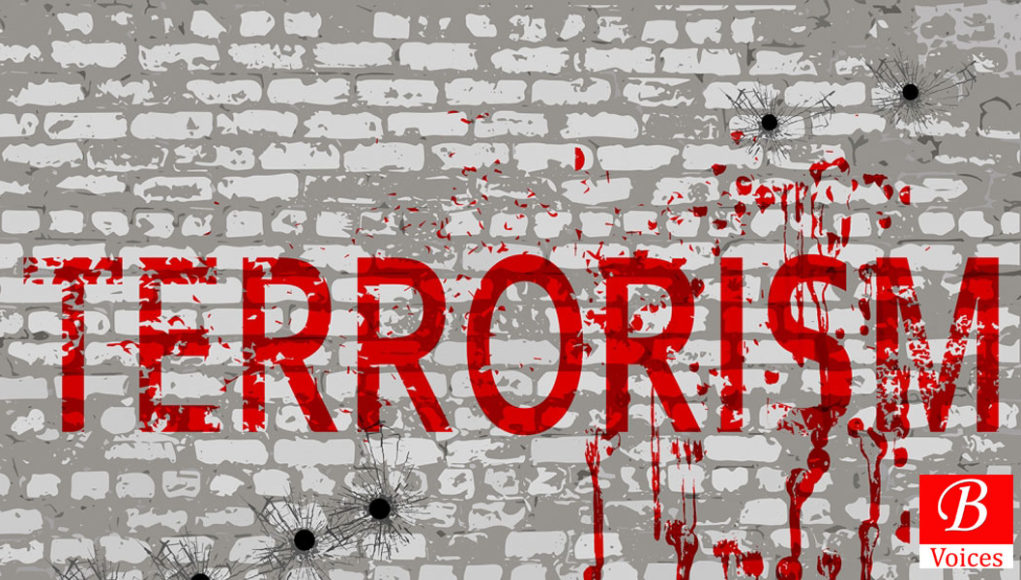Tahira Khan
Owing to the current beleaguered situation of security, it is pertinent to ask some questions regarding the implications of policies in any democratic setup. People should inquire who is spreading fear and why? In addition to that, there is a need to determine why civilians are targeted daily. Are we living in some conflict zone? Accordingly, the predominant view that more stringent security measures are taken because of the emerging threat of terrorism must be investigated.
In the context of Balochistan, it seems more important to discuss what terrorism is and what it is not because there is a perpetual spread of fear among the local populace. Accordingly, common sense suggests starting the discussion with an attempt to define the concept in the first place. After all, how can we talk about any topic without knowing what the topic means? However, terrorism is a difficult and contested subject to deal with.
It is pertinent to note how governments define terrorism around the globe. Virginia Held, American Philosopher, explores this in a more nuanced way. According to her, Government defines terrorism in the context to attack their opponents. This definition also applies to people who seek to change policies or alter something in the political system. Most importantly, it may also target those who question the status quo in a given political environment. Many governments apply this set of elements while claiming the authenticity of any act to be lying in the terror ambit.
Likewise, US State Department defines terrorism as something belonging to the acts of ‘subnational groups or clandestine agents’. As far as International law, it deploys the definition used by governments. This definition is both unsatisfactory and unjustified as it doesn’t include what state terrorism is. For instance, Virginia Held takes into account the acts of Argentinian military rulers who disappeared thousands of their political opponents to suppress the rising political dissent. This was an act of state terrorism. Similarly, several Israeli and US Political scientists maintain that many acts of state qualify in the context of Political terrorism. In brief, how can we defend Israel’s act of torture against Palestinians as something other than political terrorism?
Neve Gordon, Professor of Human Rights Law at Queen Mary University, has engaged with the term ‘Political Terrorism’. According to his take, state-sponsored torture lies in the ambit of political terrorism. It is pertinent to mention that torture tactics are not only used to extract information from political opponents but are more likely used to silence the population. In this regard, the case study of ‘The Arab-Israeli Conflict’ is dissected to mention various acts of states including the use of tanks, soldiers, and airplanes to terrorize the people.
In particular, state terrorism or state-sponsored terrorism is a phenomenon when the government of any state supports other states or group members to carry out activities. For instance, the US blames Syria and Iran for funding and supporting several terror outfits. On the other hand, in the 1980s, US support towards Contras in Nicaragua to spread fear against Sandanista rebels falls in the same category of state terrorism. Generally, states deploy and recognize such tactics while dealing with adversaries.
Owing to the theory and practice of the concept, Virginia Held defines terrorism as some form of violence, especially political violence. In this regard, queries may arise about the status of Al-Qaida whose agenda has more religious elements rather than political objectives. Therefore, the case of Al-Qaeda may be more defined as religious domination of the political scenario. Whatever the theory and practice suggest, Al-Qaeda dominated the religious sphere through violence and violence is political.
More precisely, Virginia Held claims that terrorism is an act to terrorize people. In the same vein, terrorizing people means spreading fear among them. This is one of the alternate tools to coerce a large populace than directly killing or harming them. Scholars further engage the placement of civilians in the context of terror ambit as well. Many of them define terrorism as when civilians are targeted. In his more recent book titled ‘Human Shields: A History of People in the Line of Fire’, Neve Gordon along with Nicola Perugini, Senior Lecture at the University of Edinburg, explores the legal fate of civilians in conflict zones along with examining the trends of modern warfare and evolution of humanitarian and international law.
Besides, the book defines how civilians are trapped in a cage of political violence along with the use of more violence against vulnerable groups of society. As far as international law is concerned, it is evolving with time but with some serious limitations when it comes to defining what is terrorism and what is not. International law seems biased because it favors the state while relegating the status of non-state groups when acts of terrorism are legally codified. In a nutshell, the book urges us to unlearn what is ethical or what is unethical given the biased use of international law to propagate violence. Certainly, states must abandon old-age formulas and engage in new forms of humane politics.
For these reasons, terrorism has a serious problem with its definition. It may see that the deliberate killing of civilians is a terror act and morally unjustifiable. If we apply this definition, then can we assume that blowing up the U.S. Marine barracks in Lebanon in 1983 was not an act of terrorism? Is the definition also exempt incidents such as the blowing of the US destroyer USS Cole and the killing of sailors in Yemen in 2000? But, in academia and media discourses, all these incidents are described as acts of terrorism.
As a result, the definition of terrorism requires some sharp distinctions where civilians and military targets are explored from different perspectives. Thereupon, the 9/11 attack on World Trade Centre is certainly an act of terrorism as the target was civilians mainly. But, the Pentagon attack on the same day was a military target. Virginia then further explores these definitional clauses of terrorism. If we deploy ‘targeting civilians’ as the main terror act because civilians are non-combatants and exclude other cases involving combatants. But, Virginia Held has a more nuanced method to describe non-combatants, as civilians, not shooting others while combatants are involved in the shooting. Following that, there arises a question of why Marines, who were sleeping, or the Colonels of the Pentagon, working at desks, should be excluded from the victims of terrorism. Thereupon, it is suggested that only those targets must be excluded from the terrorism ambit who are presently engaged in combats or, more precisely, not shooting at others.
Contrarily, this point that combatants are the ‘legitimate target’ is also flawed as it exempts those ‘military officers’ who give orders and focus on those ‘soldiers, sailors, pilots, and support staff’ who are compelled to obey orders. Can we say that it is legitimate to attack the lowest hierarchy of military personnel while it is not okay to target the main target who gives orders? Here, the actual responsibility lies on the ones who give orders and make ordinary soldiers perpetual tools of violence.
Consequently, if we take terrorism as an act of attack on civilians then how do we define the bombings of Hiroshima, Nagasaki, London, and Dresden? What about all those bombings where civilians are targeted and fear is spread like in the case of the US bombing of Vietnam? To clarify, these all are acts of terrorism. In this regard, Virginia Held further states;
“What a lot of discussions of terrorism try of course to do is to come up with a definition such that what they do is terrorism and is unjustified, whereas what we and our friends do is not terrorism but a justified response to it, or is justified self-defense”.
The writer holds an M.Phil Degree in South Asian Studies from the University of Punjab. She can be reached on Twitter @TahiraGhilzai.
Click here to read previous articles of the writer.
Disclaimer: Views expressed in this article are those of the writer and Balochistan Voices does not necessarily agree with them.
Share your comments!








